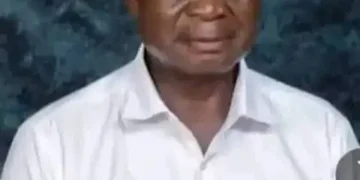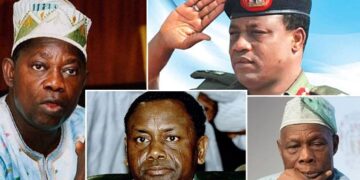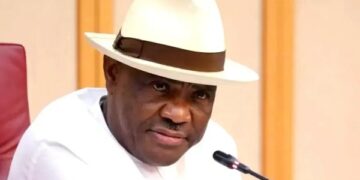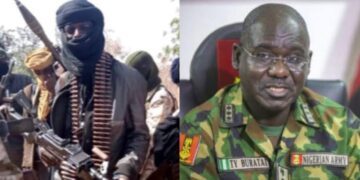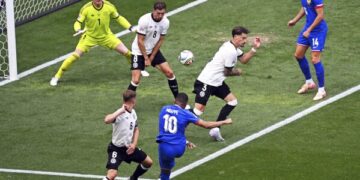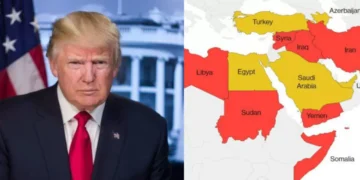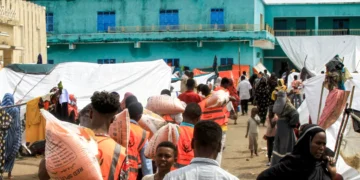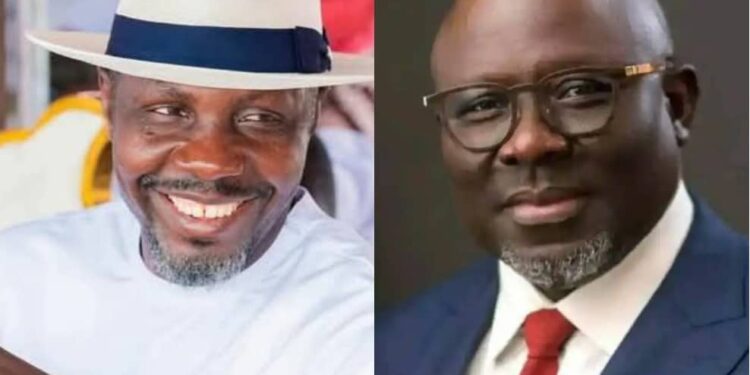Kantu Is Ijaw Community in Gbaramatu Kingdom
The people of Kantu (Ikantu) Community, have declared that they belong to Gbaramatu Kingdom, Warri South West Local Government Area of Delta and not Itsekiri ethnic group as being peddled in the media.
This declaration was made by the leadership of Kantu Community, Gbaramatu Kingdom, Warri South West Local Government Area, at a press conference held at Kantu Community.
Reading the press statement on behalf of his people, Kantu Community Chairman, Mr. Windfree Atemubaghan, said the clarification became pertinent as a result of age- long misrepresentation of their ancestral affinity and descent
The press statement was signed by Pa. Edwin Atikan Atemubagha, Ama-Okosuwei of (Ikantu) Community; Mr. Windfree Atemubaghan
Chairman, (Kantu) Community, Chief (Lt-Col) S.A. Etoromi (rtd), Chef Shola Gbofeyin,
Chief Arthur Eyiangho, Pa. Isaac Meneko,Elder Kantu (Ikantu) Community Mr. Joseph Adidi, The Chief Priest of Kantu (Bantu) Community, and Stephen Efejuku, Esq.
Legal Adviser, Kantu (Bantu) Community, amongst others.
According to them, “We, the undersigned, acting for ourselves and on behalf of the people of Kantu (Ikantu) community in Gbaramatu Kingdom, Warri South West Local Government Area, Delta State, wish to address the press in respect of an age-long misrepresentation of Kantu Community as an Itsekiri Community, instead of an ljaw Community in Gbaramatu Kingdom, Warri South West Local Government Area, Delta State.
“The Kantu (Ikantu) Community is an Ijaw Community from origin when Gbaramatu Clan (kingdom) was founded by our ancestors in about the 11th century. The founder of Kantu Community was an Ijaw man named Oweizibiri, who is a full blooded Ijaw man from Oporoza in Gbaramatu Kingdom.
“Our ancestor, Oweizibiri who had earlier lived in Amadino (Omadino) an Ijaw fishing settlement with his father (Tometebe) got married to Erebo, a petty trader from Ode in Old Western Region (South West). The marriage was blessed with seven children namely Igbon, Afughu, Korobo, and Obiti who are all females while lyejo (Erejo) and Egbegha are males. It is on record that Emiemie, one of the grand children of Oweizibiri, was buried as an old man in Amadino (Omadino).”
Expantiating on their expansion and cordial relationship with neighbouring communities, the statement added, “Male children of Oweizibiri married Itsekiri women who also gave birth to other children. In the course of growing up, the children were more attached to their mothers, who spoke their Itsekiri dialect, with their children. And some of the children also inter-married with other Itsekiri indigenes.
“As such, Itsekiri language became dominantly spoken by majority of Ikantu people. This is how the Ikantu Community which is one of the major communities in Gbaramatu Kingdom became affiliated to ltsekiri people.
“From the above, we wish to categorically inform the general public, Local, State, and Federal Governments and the International Community that Ikantu is an Ijaw Community in Gbaramatu Kingdom and is never, was never and will never be part of Itsekiri ethnic nationality.”
They explained that some of the descendants of their ancestor, Oweizibiri, were still bent on alienating their father (ljaw) land to their maternal Itsekiri nationality.
“We strongly condemn this attitude of these persons because it has created antagonism for the people of Ikantu Community, among their kiths and kin in Gbaramatu Kingdom and the larger Ijaw nation.
“In conclusion, we wish to state and inform the general public, Local Government, State, Federal Government and the International Community that Ikantu is an Ijaw Community, having an ancestral affinity with Gbaramatu Kingdom in Warri South West Local Government Area, Delta State and will continue to remain in the traditional institution of Gbaramatu Kingdom.
“Finally, we hereby pledge our loyalty and allegiance to HIS Royal Majesty Oboro Gbaraun Aketekpe Agadagba, the Pere of Ancient Gbaramatu Kingdom.”
The press conference was witnessed by a large delegation of Gbaramatu Kingdom Chiefs sent by the traditional ruler of Gbaramatu Kingdom, who said they were there on the invitation of their Kantu brothers to witness the epoch declaration.


